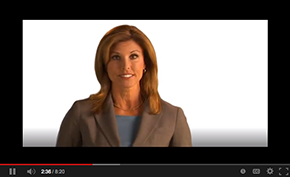Most business in the modern world is conducted by corporations. They make the cars we drive, the computers we use, and the clothes we wear. They run banks, amusement parks, and hospitals. Corporations touch every part of our lives. Why is this? One reason is that corporations can raise money in the stock and bond markets. Another is that they can limit the legal liability of their investors—if I invest in a corporation, I may lose money, but I won’t lose any more than I put in. The development of the corporation may have been as influential in the creation of the modern world as any scientific advance or technical innovation.
But while I may be able to limit my legal liabilities, I can’t out-source my personal ethics. Regardless of whether my employer treats customers well or poorly, I have a personal responsibility to treat each individual I meet with dignity and respect. I can represent a client’s point of view, but I can’t lie for them.
The same is true of my responsibilities as an actuary. Being a professional means more than simply complying with the law. Everyone—professional or not—has to obey the law. We are professionals because we recognize that the work we do affects people’s lives. We understand that we have a responsibility to the public. Because this is an ethical responsibility, and not merely a legal one, it cannot be outsourced. It’s a matter of personal integrity.
Personal integrity lies at the heart of our Code of Professional Conduct, which “sets forth what it means for an actuary to act as a professional. It identifies the responsibilities that actuaries have to the public, to their clients and employers, and to the actuarial profession.” These responsibilities are not abstract or academic; nor does the Code allow us to outsource our professional responsibilities to an employer, or to any other organization. Instead, the Code applies to individuals: “An Actuary shall comply with the Code.”
The Code expressly links individual ethical behavior to our responsibilities as professionals: “The Precepts of the Code identify the professional and ethical standards with which an Actuary must comply in order to fulfill the Actuary’s responsibility to the public and to the actuarial profession.” Precept 1 of the Code re-quires the personal commitment of each actuary to “act honestly, with integrity and competence, and in a manner to fulfill the profession’s responsibility to the public and to uphold the reputation of the actuarial profession.” This precept applies not only to actuarial services, which we must perform “with skill and care,” but also to our conduct beyond the performance of actuarial services. For example, under Annotation 1-4, actuaries “shall not … commit any act that reflects adversely on the actuarial profession.”
The reason for this linkage is simple: The public trusts individual actuaries because they trust the profession. But the reverse is also true. The misconduct of a single actuary can undermine the public’s trust in the entire profession.
The ethical stature of the individual actuary provides the foundation for our standards of conduct, qualification, and practice, as well as our disciplinary process. Each of these elements of professionalism is rooted in the Code. It sets out the standards that each of us must follow when providing actuarial services to the public, as well as our conduct toward fellow actuaries and the responsibility of each of us to participate in the profession’s discipline process. The personal nature of integrity is reflected in the discipline process: It is the individual actuary who may be counseled or disciplined for not maintaining a high level of integrity, not his or her employer or client.
Because these standards are root-ed in our individual ethical obligations, they “serve to assure the public that the profession imposes its canons of behavior not only with respect to knowledge and skills but also with respect to integrity, independence, and a commitment to quality service,” as the highly respected actuary Edward A. Lew once wrote.
The binding nature of the Code of Professional Conduct and the standards of qualification and practice may cause tension at times between individual actuaries and other stakeholders. For example, an ethics survey conducted by the Academy in 2012 found that the top ethical concern of actuaries in the United States is “responding to pressure from principals and/or management to select inappropriate assumptions used in pricing or reserving.” Such pressures are not surprising; members of other professions face similar pressures. But our professionalism can help us respond appropriately to them. Lew explained:
“Actuaries who are … influenced in their judgment by their partners or employers may find themselves in awkward situations. They can resolve such conflicts in the light of the principle that their primary responsibility is to their profession and the public. … Conflicts between business interests of a client and the public interest require all professionals to stand by the latter.”
Integrity is essential to the U.S. actuarial profession. Without it, we will lose the public’s trust. Because of this, the reputation of the actuarial profession depends on each and every one of us. We cannot outsource integrity—it is an individual responsibility.
Remember, there is an “I” in integrity.
(Featured in the May 2016 Actuarial Update.)




